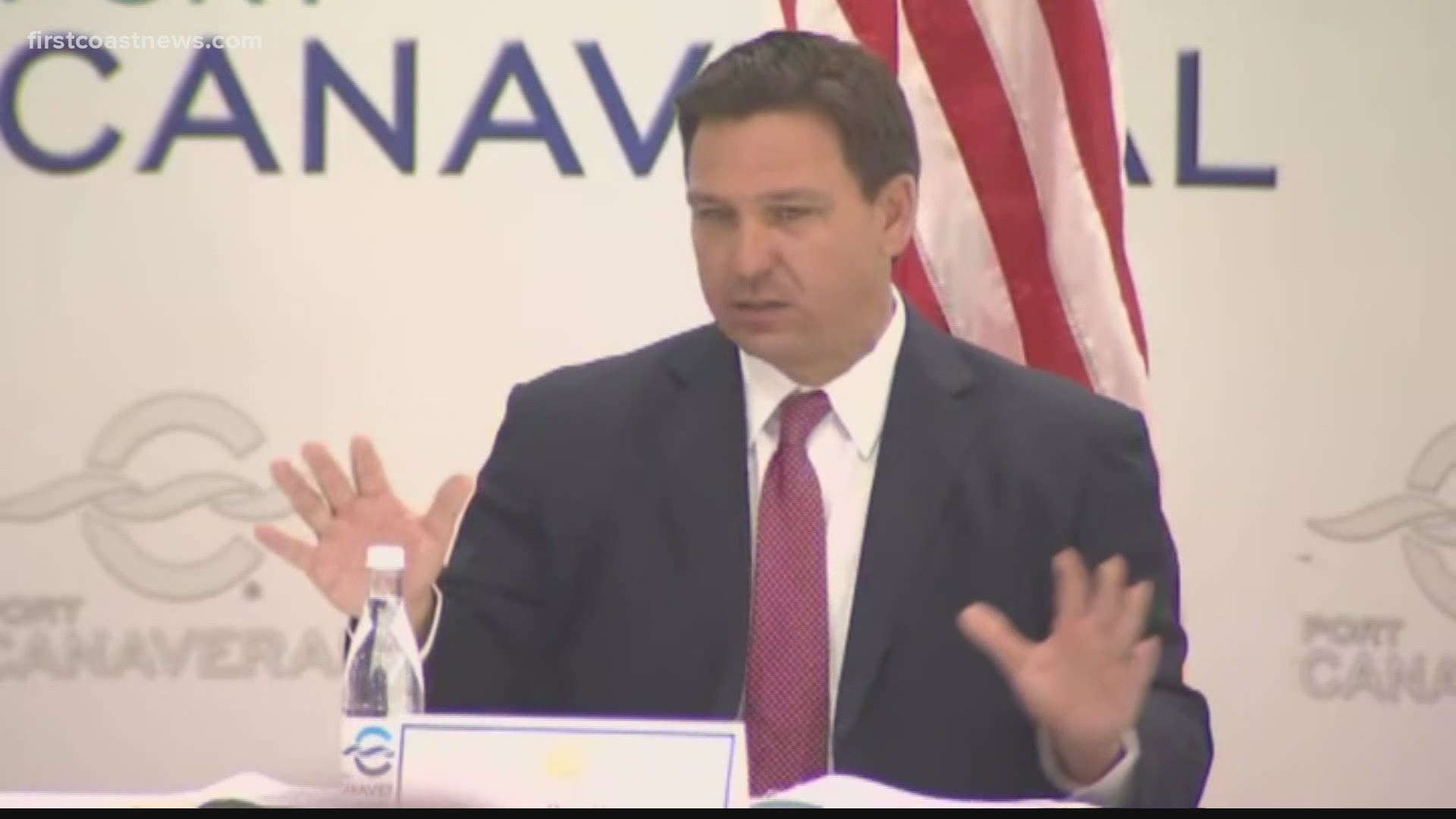PORT CANAVERAL, Fla — What will it take to get cruise ships sailing again?
That’s the question Florida Gov. Ron DeSantis had on his mind Friday during a roundtable in Port Canaveral.
Gov. DeSantis, Attorney General Ashely Moody and Florida Department of Transportation Secretary Kevin J. Thibault, heard from people who have been impacted by the Center for Disease Control’s no-sail order.
Cruise line leaders and other businesses said they were ready to get back to work.
Gov. DeSantis agreed and said he wants to figure out a date to get ships back on the water.
“We want a plan for them to go again,” DeSantis said.
Gov. DeSantis said he doesn't understand why other types of travel are allowed but not cruising. He said the nation is better off now than it was at the start of the pandemic and called the CDC’s decision not to lift the order “poor leadership.”
He said he feels there is no sense of urgency to get people back to work from the federal government.
“This is a bureaucracy that can’t get its ducks in a row,” DeSantis said.
DeSantis said he and Attorney General Moody were discussing legal action they could take if the CDC does not lift the order. He said they haven’t taken any action yet, and want to work with the federal government, but they are keeping their options open.
“An agency can’t shut down an industry based on outdated information. Since then we’ve moved on. We will legally fight it,” Moody said.
RELATED: CDC reviews Nov. 1 'no sail' order amid pandemic push from cruise industry to change 'outdated' rule
In October, the CDC outlined the framework for cruise ships to resume U.S. trips amid the coronavirus pandemic.
Before cruises can welcome back any customers in the U.S., companies will need to implement COVID-19 safety measures, establish lab capacity to be able to test all crew members and future passengers, and participate in a mock voyage.
According to the CDC's order, the simulated voyages will be used to test ships' ability to mitigate COVID-19 risk onboard. Volunteers for those voyages will have to be older than 18 years old and can't be considered high-risk for COVID-19.

